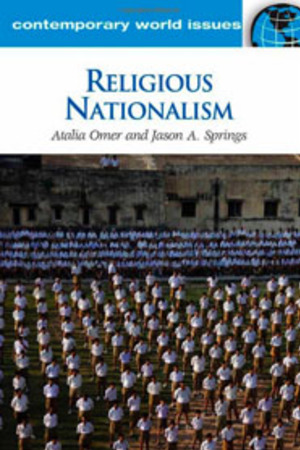Religious Nationalism: A Reference Handbook

ABC-CLIO, 2013
Religious nationalism is a complex topic fraught with sensitive questions. Does religion cause violence? Is nationalism a quasi-religion? Are the constant conflicts around the world really about religion, or is religion merely a form of false consciousness? Is religious nationalism primarily a powerful tool political elites use to manipulate the masses?
This book tackles the assumptions behind common understandings of religious nationalism, exploring the complex connections between religion, nationalism, conflict, and conflict transformation.
Religious Nationalism challenges dominant scholarly works on religious nationalism by identifying the preconceptions that skew analysis of the phenomenon dubbed "religious nationalism." The book utilizes a multidisciplinary approach that draws insight from theories of nationalism, religious studies, peace research, and political theory, and reframes the questions of religious nationalism within the perspectives of secularism, modernity, and Orientalism. In doing so, the authors enable readers to uncover their own presumptions regarding the role of religion in public life.
Unlike other works on this subject, the work outlines connections between the analysis of the role of religion in conflict to thoughts regarding how religion may relate to processes of peacebuilding and conflict transformation, and further connects the discussion of religious nationalism to broader conversations on the so-called resurgence of religion. The book will serve advanced high school and college students studying religion, international relations, and related subjects while also appealing to a wide audience of readers with an interest in questions of religion and politics.
Features
- Speeches of political and religious leaders
- Chronologies of conflicts in such places as Israel-Palestine, Sri Lanka, and the former Yugoslavia
Highlights
- Grounds complex theoretical discussions in concrete examples of conflicts from recent history
- Challenges the presuppositions inherent in conventional modes of analyzing religious nationalism as a pathology
- Focuses not only on conflict and violence, but on identifying how and why a complex analysis of the role of religion in conflict may also inform constructive work in conflict transformation and peacebuilding
- Connects the discussion of religious nationalism to broader concerns with the so-called global resurgence of religion
About Atalia Omer »
About Jason Springs »